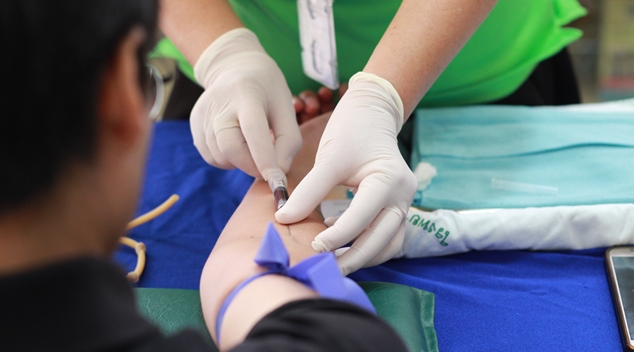
The US Food and Drugs Administration (FDA) has signed off on the first injectable PrEP treatment. Rather than needing to take a pill every day, people will now be able to protect themselves from HIV via a series of regular injections.
The approved Apretude (cabotegravir extended-release injectable suspension) for use in at-risk adults and adolescents for pre-exposure prophylaxis (PrEP) to reduce the risk of sexually acquired HIV.
Apretude is given first as two initiation injections administered one month apart, and then every two months thereafter. Patients can either start their treatment with Apretude or take oral cabotegravir (Vocabria) for four weeks to assess how well they tolerate the drug.
Debra Birnkrant, M.D., director of the Division of Antivirals in the FDA’s Center for Drug Evaluation and Research, said the new option would be critcal in addressing the HIV epedemic in the USA.
“Today’s approval adds an important tool in the effort to end the HIV epidemic by providing the first option to prevent HIV that does not involve taking a daily pill,” Dr. Birnkrant said. “This injection, given every two months, will be critical to addressing the HIV epidemic in the U.S., including helping high-risk individuals and certain groups where adherence to daily medication has been a major challenge or not a realistic option.”
Like many countries who have made PrEP treatment widely available the USA has seen an notable difference on the level of new infections of HIV being reported. When PrEP was first made available in the USA back in 2015 only 3% of the people who would benefit from the medication were taking it, by 2020 this had risen to 20%.
Pre-exposure Prophylaxis (PrEP) is a once a day medication that is highly effective in preventing people from contracting HIV, combined with effective treatments that allow people who are living with HIV to maintain an undetectable viral load, it has made a major difference in the fight against HIV.
PrEP requires high levels of adherence to be effective and certain high-risk individuals and groups, such as young men who have sex with men, are less likely to adhere to daily medication. Other interpersonal factors, such as substance use disorders, depression, poverty and efforts to conceal medication also can impact adherence. It is hoped that the availability of a long-acting injectable PrEP option will increase PrEP uptake and adherence in these groups.
The safety and efficacy of Apretude to reduce the risk of acquiring HIV were evaluated in two randomized, double-blind trials that compared Apretude to Truvada, a once daily oral medication for HIV PrEP. The two trials involved nearly 8,000 participants.
Some participants in the trial reported some side effects including injection site reactions, headache, pyrexia (fever), fatigue, back pain, myalgia and rash. The medication will also carry warnings for hypersensitivity reactions, hepatotoxicity (liver damage) and depressive disorders.
OIP Staff
You can support our work by subscribing to our Patreon
or contributing to our GoFundMe campaign.





